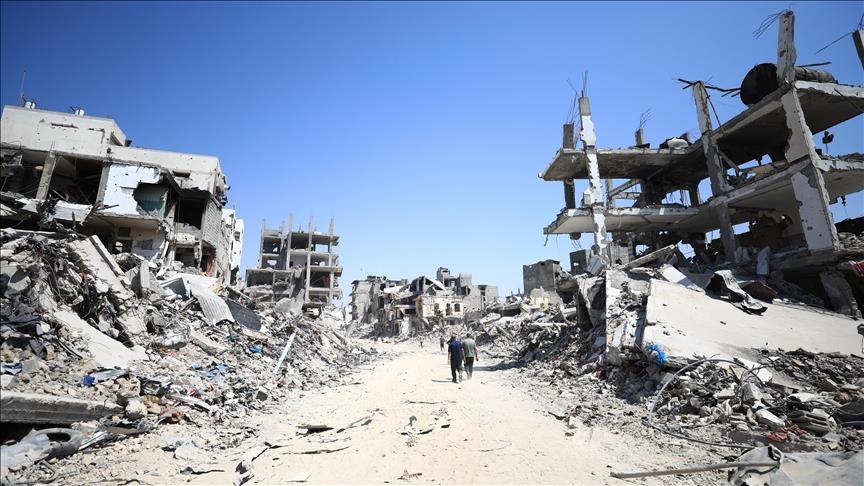Wars make more carbon emissions than many countries, making humanitarian crises into environmental disasters
US Defense Department, world's largest fossil fuel-using institution, ranks 1st globally in greenhouse gas emissions

ISTANBUL
Huge amounts of carbon emissions occur due to military operations carried out by many countries around the world, especially the US and Israel, with experts saying wars have a significant impact on the environment and climate.
According to the UN Framework Convention on Climate Change, military investments and activities worth more than $2 trillion occur globally every year. While at least 5.5% of global carbon emissions come from these investments and activities, fossil fuels used for daily military operations and for the energy needs of vehicles and facilities stand out among the items that cause the highest carbon emissions.
According to a study titled “Pentagon fuel use, climate change and the costs of wars” published by Boston University, the US Defense Department is the world's largest fossil fuel user and ranks first in greenhouse gas emissions with 3.7 billion tons of carbon dioxide equivalent emissions from 1975 to 2018.
The US, whose one-year carbon emissions from military activities alone are equivalent to the total emissions of many countries, stepped up its military operations after the terrorist attacks of Sept. 11, 2001. Since then, the Pentagon has carried out military operations in many countries overseas, emitting 1.3 billion tons of carbon dioxide equivalent emissions from 2001 to 2018.
US military operations in Afghanistan, Iraq, Pakistan, and Syria resulted in a total of 440 million tons of carbon emissions, including 250 million tons emitted during the invasion of Iraq.
According to the online statistics portal Worldometers, 180 countries in 2022 had annual emissions of less than 250 million tons.
While the carbon emission cost of the attacks and conflicts in the first seven months of the Russia-Ukraine war is calculated to be at least 100 million tons, according to a study by Queen Mary University of London, Israeli attacks caused 420,000 to 652,000 tons of carbon dioxide equivalent emissions in the first 120-day period of the Gaza war (October 2023-February 2024). This is more than the annual carbon emissions of 26 individual countries and territories.
Most of these emissions come from the flights required for the operation, the fuel used by tanks and other military vehicles, and bombing.
In addition, rebuilding the 156,000 to 200,000 structures destroyed in Gaza is expected to generate 46.8 million to 60 million tons of carbon emissions in the long term.
'Destruction caused by wars affects the climate in different ways'
Mona Rady, head of the Professional Forum of the UN Human Settlements Program, told Anadolu that wars are an important environmental crisis that the world needs to solve.
Stressing that all stakeholders should do their part to fight the environmental burden caused by wars as well as in the fight against the climate crisis, Rady said the meetings of the UN Conference of the Parties (COP) on climate change, known as COP summits, are an important opportunity, as they bring all parties together.
Stating that her biggest expectation from COP29, which will be held in Baku, Azerbaijan this Nov. 11-22, is to find a solution to the destruction caused by wars, Rady emphasized that this destruction affects the climate in different ways.
Saying that wars have multiplied in various parts of the world in the last few years, Rady stated: “These wars create major crises. The Russia-Ukraine war, the ongoing conflicts in various parts of Africa, the conflicts in South Asia, all these create various crises.”
Stating that Israel's attacks on Gaza are also an environmental massacre, she said: “What happened in Gaza has turned into a humanitarian crisis as well as an urban crisis, a health crisis, and Gaza has been almost completely destroyed. We want to rebuild Gaza, but how do we rebuild the climate there, that has changed as a result of all this destruction. How do we normalize the climate there?”
*Writing by Efe Ozkan








